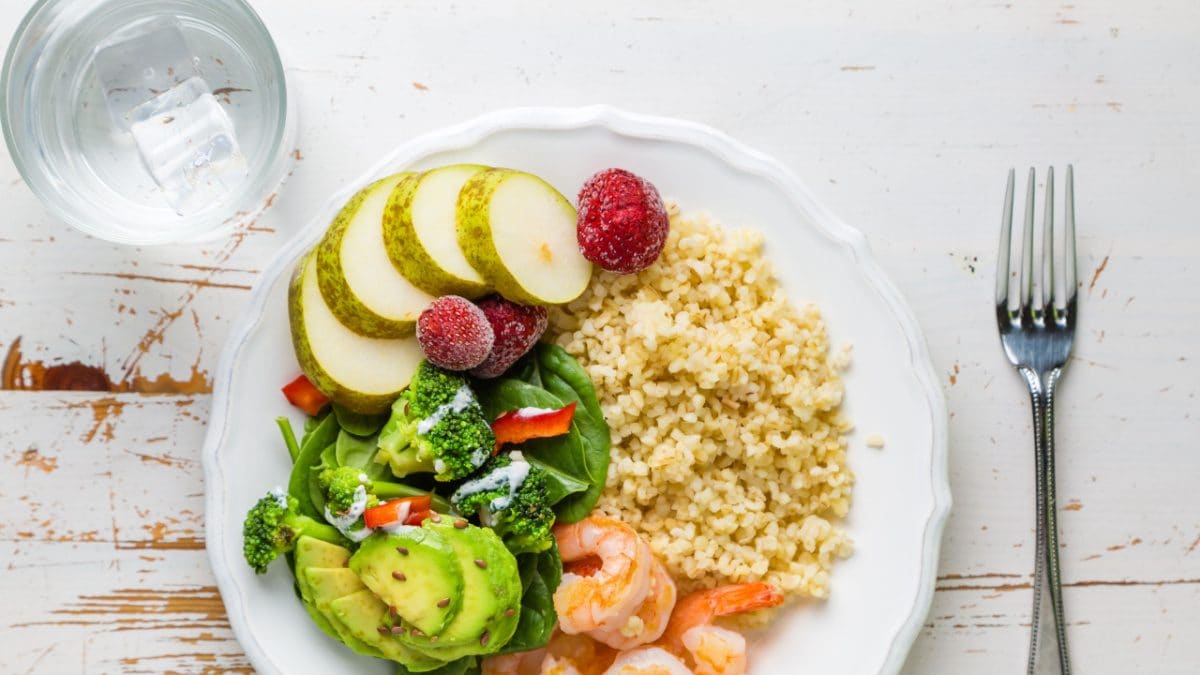How Much Is Too Much? Check Out The Right Portion Size Of Your Meals

In today’s fast-paced world, it’s easy to fall into the trap of consuming larger portions of food than our body requires. This habit can lead to overeating, weight gain, and several other health issues. Portion control plays a crucial role in maintaining a healthy diet and leading a healthy lifestyle. But, how do we determine the right portion size of our meals? Is there a one-size-fits-all approach to portion control? Understanding the impact of portion control on our overall health is important and helps you make better food choices and manage your portions effectively. So, let’s dive in and learn how much is too much when it comes to our daily food intake.
“The moment one starts feeling full, it is an indication that one may have eaten TOO MUCH. A personal mantra can be to constantly dial into a mode where one stops eating once one is not hungrier and not when one is full! This needs to be done deliberately and daily (if needed) and it works brilliantly; It keeps one feeling light, and also energetic, and powerful enough to enable an efficient day,” says Nikhil Kapur, co-founder & director, Atmantan Wellness Centre.
Although, while there already exists well-defined dietary guidelines for all audiences (including those who are preparing for sporting events to those who are suffering from chronic ailments), one must nevertheless consult a certified doctor or nutritionist for a personalized plan rather than trying something online.” The reason for this is that most things, even a dietary plan, cannot be a one-fits-all kind of solution and should be prescriptive in nature. After assessing the health profile and objective of the individual, a team of Doctors provides customised and time-bound dietary plans that along with herbal supplements rightly address the nutritional gaps,” adds Kapur.
For instance, when prescribed an LCHF (Low Carb High Fat) plan under doctor’s guidance for a few weeks, there can be different versions of this as well. “Someone may be on a NO GRAIN, NO DAIRY, NO FERMENTED FOODS plan with an objective to address inflammation, while another may not need this version. As someone who would be able to have these options, one may get confused in the short run and write off the LCHF diet altogether for life,” believes Kapur.
Tanisha Bawa, nutrition coach, founder of TAN|365 says, “Nutritionally balanced meals are of utmost importance for overall health and wellbeing. Here are the ideal recommended quantities of the micro and macro nutrients that your body needs on a day-to-day basis.”
- Protein: Aim for 120-200 grams per meal
Sources include chicken, fish, eggs, mushrooms, peas, spirulina, etc.
- Healthy fat: Aim for 15-25 grams per meal
Sources include coconut, avocados, ghee, butter, fatty fish, olive oil, nuts.
- Fiber: Aim for 8-12 grams per meal
Sources include vegetables like broccoli, cauliflower, beans, spinach etc.
- Starchy veggies or complex carbs
Sources include potato, sweet potato, quinoa, amaranth, lentils etc.
Here is a way to help you visualize the portion sizes for a balanced meal:
Your 2 Fists = Vegetables
Your Palm = Protein
Your cupped hand = Starchy veggies / Complex carbs
Your Thumb = Healthy fats
Home-cooked meals on most days where one can tank up on vegetables are recommended. “As one consumes more vegetables, along with proteins, one will also be able to curb the carb intake to moderate as well. However, when training for a sporting event (at peak training) one would consciously consume more carbs (complex) such that the calorie intake would go up from 1500-1800 to 2800-3000 calories per day,” states Kapur.
Usually in most cases, one tries to also stay on a calorie deficit diet and limit calorie intake to anywhere from 500-1200 calories such that the underlying infections, inflammations etc. that need to be treated, can be. Then again there are certain cases where one needs to eat more to get well.
For the larger population of age group or even amateur athletes, one must carefully supplement the day such that one is able to meet not just the fueling requirements but attain optimal gut health. It is inadequate nutrition or compromised lifestyles that catch up with us and cause our gut and bodies to deteriorate.
Read all the Latest Lifestyle News here

Atul Tiwari is a seasoned journalist at Mumbai Times, specializing in city news, culture, and human-interest stories. With a knack for uncovering compelling narratives, Atul brings Mumbai’s vibrant spirit to life through his writing.





